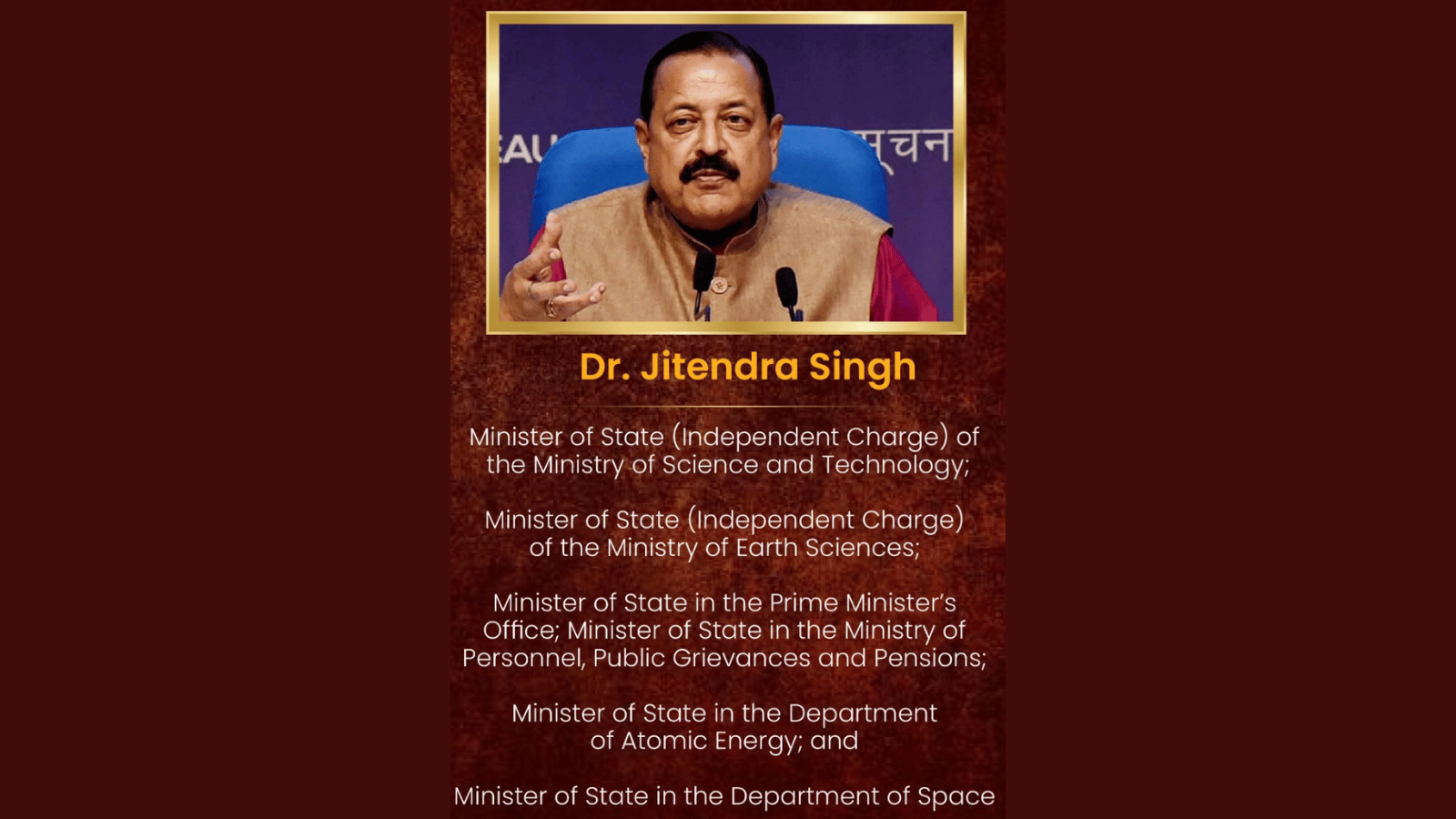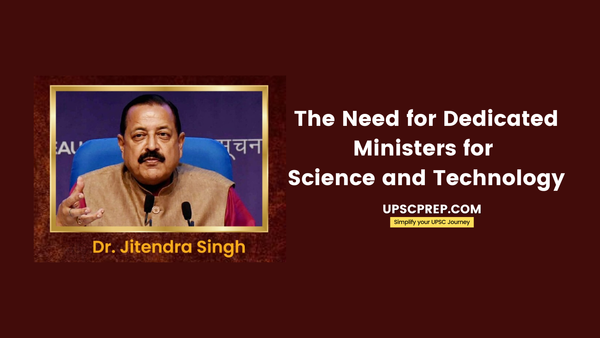Table of contents
Why in the news?
The recent allocation of portfolios in the 18th Lok Sabha has highlighted a significant issue: the vast and complex domain of science and technology is currently being managed by a single Minister of State with independent charge, Jitendra Singh.

His portfolio includes the Departments of Space (DoS) and Atomic Energy (DAE), the Ministries of Earth Sciences (MoES), Science and Technology (MST), and Personnel, Public Grievances and Pensions.
This consolidation raises concerns about these critical sectors' effective administration and advancement.
Key Challenges in the Current Setup
Diverse and Expanding Responsibilities:
- Department of Space (DoS): The DoS is navigating the entry of private sector players into the national space program, managing the development of India's maiden human spaceflight mission, and new launch vehicles.
- Ministry of Earth Sciences (MoES): The MoES is involved in seabed exploration for mineral resources and climate adaptation and mitigation efforts.
- Ministry of Science and Technology (MST): The MST oversees India's primary research departments, which are engaged in cutting-edge fields such as artificial intelligence, quantum computing, multi-omics approaches, and advanced energy storage solutions.
- Department of Atomic Energy (DAE): The DAE is advancing nuclear power, including starting phase two of its reactors program and commissioning one facility every year.
Persistent Problems in Research and Development:
- Fellowship and Grant Disbursals: Timelines for disbursing fellowships and grants to young researchers are often delayed.
- Interdisciplinary Research Facilities: These facilities are localized and not conducive to collaboration.
- Regulatory Challenges: Cutting-edge research is hindered by inconsistent regulations.
- Intellectual Property Rights: Protection of intellectual property rights is inadequate.
- Translational Research: This type of research is limited and sector-specific.
- Funding: Gross domestic expenditure on research and development as a fraction of GDP has been declining since 2008-09.

The Case for Dedicated Ministers
- Specialized Focus: Each of these sectors—space, earth sciences, science and technology, and atomic energy—requires specialized attention and expertise. A dedicated Minister for each sector would ensure focused and effective administration.
- Enhanced Capacity Building: With dedicated Ministers, there can be a more systematic approach to capacity building, ensuring that the sectors can absorb and utilize funds productively.
- Improved Coordination and Collaboration: Separate Ministers can facilitate better coordination and collaboration among different research bodies and with international counterparts.
- Addressing Sector-Specific Issues: Dedicated Ministers can address sector-specific issues more effectively, such as improving the timelines for fellowship and grant disbursals, enhancing interdisciplinary research facilities, and ensuring robust intellectual property rights protection.
- Boosting Research and Development: A focused approach can help reverse the decline in gross domestic expenditure on research and development, fostering a more conducive environment for innovation and scientific advancement.
Conclusion
The current setup, where a single Minister of State oversees multiple, highly specialized and rapidly evolving sectors, is inadequate for addressing the complex challenges and opportunities in science and technology. India needs dedicated Ministers, ideally of Cabinet rank, for each of its major nodal research bodies. This would ensure that the unique needs of each sector are met, persistent problems are addressed, and the country can make meaningful progress in science and technology during the coalition government's tenure.
Source: The Hindu

